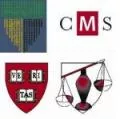
Harvard-MIT-Yale Cyberscholar Working Group
Wednesday, January 28, 5:30 PM
MIT building 3, room 133, Map
The event is co-sponsored by MIT Comparative Media Studies and the Center for Future Civic Media. Dinner is provided but please RSVP to [email protected].
http://civic.mit.edu/event/harvard-mit-yale-cyberscholars-working-group
The "Harvard-MIT-Yale Cyberscholar Working Group" is a forum for fellows and affiliates of the Comparative Media Studies Program at MIT, Yale Law School Information Society Project, and the Berkman Center for Internet & Society at Harvard Law School to discuss their ongoing research. Each session is focused on the peer review and discussion of current projects submitted by a presenter. Meeting alternatively at Harvard, MIT, Yale, the working group aims to expand the shared knowledge of young scholars by bringing together these preeminent centers of thought on issues confronting the information age. Discussion sessions are designed to facilitate advancements in the individual research of presenters and in turn encourage exposure among the participants to the multi-disciplinary features of the issues addressed by their own work.
Dinner is provided but please RSVP to [email protected]
“Youth online: designing for participation and collaboration” – Andrés Monroy-Hernández (MIT)
The Scratch Online Community is a website that allows kids and novices from around the world share their own interactive media. In less than two years, close to 300,00 Scratch projects, ranging from video games to animated stories to science simulations to political satire have been uploaded to the website. As part of his research, Monroy-Hernández developed and currently manages the Scratch website and tries to understand how to design online social systems that engage young people in creative and collaborative participation. Monroy-Hernández will talk about the social patterns that have emerged in the community around issues like remixing, moral judgment, cooperation and group making and how they guide the design and administration of the community.
“Bringing Participatory Media and Learning to Ethnically Diverse Populations in Northwest China” - Stephen Wilmarth
New School Student Ambassadors has formed teams of students interested in learning documentary filming techniques. Teams consist of a mix of US and Chinese students, and students must apply for the activity (See: http://www.dragonstudentexchange.org/). Using social media, we provide a web service to each student team where they can upload raw video footage or camera images, and collaboratively work (wiki-style) on storyboarding, video editing, mash-ups, and publishing. The skills learned in these film projects are designed to provide critical media literacy to remote regions in China dominated by large ethnic and minority groups, and give US students a greater, first-hand awareness of the issues impacting minority and ethnic populations confronted with rapidly advancing stages of modernization and globalization.
“Participatory Media for Youth and Community Development” - Danielle Martin
Using case studies from Bangalore, India and Lawrence, MA, Martin is exploring how more open and iterative methods (based on new media philosophy) catalyzed by outside facilitators can aid youth development programs in becoming more responsive and demonstrate genuine learning of participatory media skills, especially across cultural contexts. She is also involved in two other group research projects, embedded in the Lawrence community and MIT university-community partnership (MIT@Lawrence), one tied to creating a new kinds of media pieces to spark reflective discussion among students, practitioners, and community members; and the other to document historical narratives and new innovation in the re-development of a mill building into new green opportunities for affordable housing, economic development and community engagement.
--------
Danielle Martin is a graduate student MIT Master's in City Planning program. Her work concentrates on developing techniques for community activists and youth to use the tools of new media and technology to enact social change. She works as a research assistant for the MIT@Lawrence project developing community partnerships and reflective practice, while incorporating new ideas from the Center for Future Civic Media.
Andrés Monroy-Hernández is a PhD student at the MIT Media Lab and a member of the Scratch Team. He holds a M.S. in Media Technology from MIT and a B.S. in Computer Science from Tec de Monterrey in México.
Stephen Wilmarth is the President & Managing Director of New School Student Ambassadors, Inc., a Visiting Lecturer at Ningxia Polytechnic & TV University, and a CIBER Academy Fellow at the Academy for Global Economic Advancement, University of Connecticut School of Business
